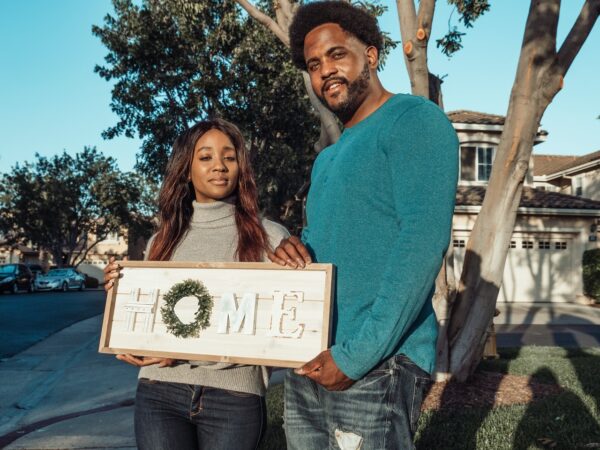Homes in predominantly white neighborhoods are often appraised for double the value of houses in Black neighborhoods, a recent university study found.

The average home in white neighborhoods has been around $136,000 during the past two years, according to a joint study of the University of Illinois Chicago and Washington University in St. Louis published last week. That compares to roughly $60,000 in Black communities. The study essentially means housing discrimination has gotten worse in the U.S. even though federal legislation passed decades ago aimed to stamp out these inequities, say sociologists Elizabeth Korver-Glenn and Junia Howell.
No Home Improvement
“Although the racial inequality in home values has been increasing since 1980, the rate by which it is increasing has tripled in the last decade,” Howell and Korver-Glenn write in the report. “From 1980 to 2015, the neighborhood racial gap in appraisals expanded by $6,000 a year. Yet, in this last decade, this gap grew by $18,000 a year.”
Korver-Glenn and Howell’s study, Appraised: The Persistent Evaluation of White Neighborhoods as More Valuable Than Communities of Color Homes, comes two months after a Maryland couple filed a lawsuit against a real estate company, alleging appraisal discrimination. Nathan Connolly and his wife Shani Mott said in their lawsuit that 20/20 Valuations and mortgage lender LoanDepot specifically found lower valued homes in their neighborhood for comparison purposes to create a lower home appraisal.
A Black couple in California also filed a lawsuit in December 2021, accusing a Bay Area appraisal company of discrimination. Paul and Tenisha Tate-Austin said their home was initially appraised at $900,000, but that figure changed to $1.4 million when their white friend stood in to show the home to an appraiser during a second visit.
Some of the sharpest appraisal gaps are in mid-to-large sized towns in the South and the West Coast, including Austin, Texas and Colorado Springs, Colorado, according to Korver-Glenn and Howell’s study. There are also large gaps in Boston, Miami, San Diego and Seattle, the study found.
Korver-Glenn and Howell based their study off the Uniform Appraisal Dataset, a database of more than 47 million home appraisals conducted nationwide on single-family properties between 2013 and the spring 2022. The research paper described how the two authors accounted for factors besides race that could affect the appraisal disparities:
“To identify appraisers’ racialized property evaluations net of these broader place-based inequalities, we use statistical modeling to compare communities with comparable housing stock, socioeconomic status, and local amenities. Specifically, we use census tracts as a proxy for neighborhoods and run separate models for each housing market—defined as metropolitan areas. Since we are analyzing each metropolitan area separately, we only include metropolitan areas with a total population greater than 500,000 and at least 50,000 residents of color. This helps us ensure our estimates of racial inequality are robust and not due to the abnormalities of a single house or neighborhood. Together, our analysis examines 32,322,858 appraisals.”
Korver-Glenn, who teaches at Washington University in St. Louis, explained the implications of the study for the industry.
“These findings are extraordinary, and a very strong indictment of the appraisal industry and the ways that it has not only maintained but increased neighborhood inequality in home values through the use of fundamentally racist practices and policies that continue to equate value with race,” said Korver-Glenn.
An appraisal happens when someone wants to buy a new home or refinance the one they’re in. A third-party appraisal management company visits a home, evaluates its features, notes its downsides, then assigns a dollar figure that the property could sell for on the open market.
What Can Be Done
Housing advocates say appraisal bias is rampant across the U.S., mainly because a majority of appraisers are white. The Black Real Estate Professionals Alliance launched a program earlier this year aimed at getting more Black people in the appraisal industry.
Until then, Black Americans can dispute an appraisal, ask for a second one or file a complaint with the U.S. Department of Housing and Urban Development, according to the Appraisal Institute of Chicago.
“Creating a more equitable housing environment in this country will take solutions advanced by real estate brokers/agents, banks, government agencies, appraisers and others,” Jody Bishop, the institute’s president, told Finurah.
The best way to get a fair valuation own your home is to finish repair work done before the appraiser arrives, Daniel Smith, CEO of home maintenance platform Keepingly, told Finurah. That means repairing leaking sinks and faucets, cracks in windows and light fixtures, he said. It also helps to clean your yard and mow the lawn before the appraiser comes, Smith added.
Homeowners should take down all interior decorations to help avoid discrimination, Smith said.
“Neutralize your home by removing identifying marks, images and pictures,” he said. “This reduces the opportunity for bias — real or imagined,” he said. “Many of the stories of lowballed appraisals point to bias, so homeowners who neutralize their homes bolster their odds of getting the highest valuation possible.”




